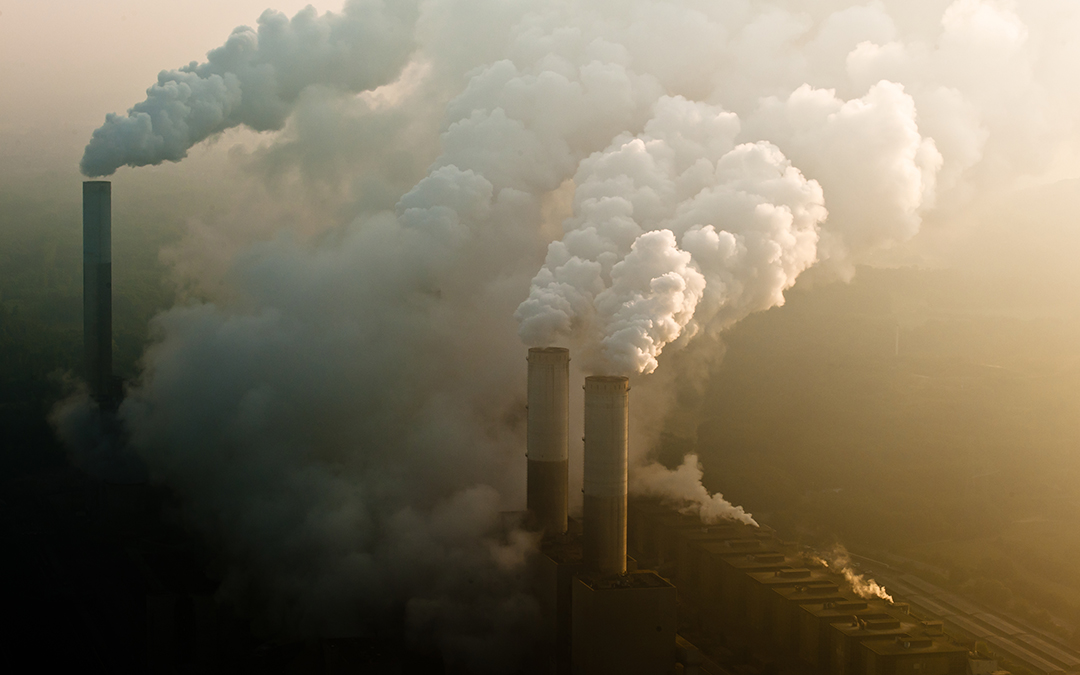 Nothing quite sharpens one’s focus on the importance of clean air quite like a respiratory illness that exploits lungs damaged—and made more vulnerable—by pollution. A recent study out of Harvard found that even a small increase in long-term exposure to air pollution significantly increases one’s risk of dying from COVID-19. The study focuses specifically on exposure to fine particulate matter (PM2.5), which includes the visible air pollution from vehicle exhaust and coal-fired power plants. These tiny particles of pollution are able to travel deep into one’s respiratory tract and reach the lungs. Exposure to PM2.5 is already known to cause inflammation and cellular damage. Evidence suggests that it may also suppress early immune response to infection. This pollution has been linked to many of the pre-existing conditions that increase mortality among those with COVID-19. The Harvard study, which analyzed 3,080 counties across the U.S., found that coronavirus patients in areas that had high levels of air pollution before the pandemic are more likely to die from the infection than patients in parts of the country with cleaner air. This should be a huge wake-up call to all of us, especially those who have not previously been concerned all that much about air pollution and how it affects their health. The study gives added urgency to expanding our use of renewable energy and electric vehicles (EVs). Having cheap, reliable, and clean electricity is important in the best of times, but it becomes most critical in times like these, where we face fear, uncertainty, and economic hardship. The energy market has changed dramatically in recent years, with solar energy emerging as...
Nothing quite sharpens one’s focus on the importance of clean air quite like a respiratory illness that exploits lungs damaged—and made more vulnerable—by pollution. A recent study out of Harvard found that even a small increase in long-term exposure to air pollution significantly increases one’s risk of dying from COVID-19. The study focuses specifically on exposure to fine particulate matter (PM2.5), which includes the visible air pollution from vehicle exhaust and coal-fired power plants. These tiny particles of pollution are able to travel deep into one’s respiratory tract and reach the lungs. Exposure to PM2.5 is already known to cause inflammation and cellular damage. Evidence suggests that it may also suppress early immune response to infection. This pollution has been linked to many of the pre-existing conditions that increase mortality among those with COVID-19. The Harvard study, which analyzed 3,080 counties across the U.S., found that coronavirus patients in areas that had high levels of air pollution before the pandemic are more likely to die from the infection than patients in parts of the country with cleaner air. This should be a huge wake-up call to all of us, especially those who have not previously been concerned all that much about air pollution and how it affects their health. The study gives added urgency to expanding our use of renewable energy and electric vehicles (EVs). Having cheap, reliable, and clean electricity is important in the best of times, but it becomes most critical in times like these, where we face fear, uncertainty, and economic hardship. The energy market has changed dramatically in recent years, with solar energy emerging as...
 Conservatives for Responsible Stewardship’s president, David Jenkins, issued the following statement in response to Royal Dutch Shell’s recently announced opposition to the Trump administration’s proposed rollback of methane rules: “We applaud Shell’s very commendable stance against the Trump administration’s proposed rollback of common-sense methane pollution standards. This is what being a good corporate citizen and good steward of our planet looks like,” said CRS president David Jenkins. “The administration would do well to take its cues from responsible companies like Shell, and abandon reckless policy proposals that cater only to bad actors.” “Shell deserves enormous kudos for its approach to methane pollution, and not only for opposing the administrations proposed rollbacks, but also for setting its own company standards to be protective of our atmosphere,” Jenkins added CRS has worked hard in opposing Trump administration plans to scrap existing rules that require oil and gas companies to minimize the release of methane, which is a powerful greenhouse gas, through leaks and excessive flaring. Such releases not only pollute the air and waste natural gas, it also costs taxpayers millions of dollars in lost royalty...
Conservatives for Responsible Stewardship’s president, David Jenkins, issued the following statement in response to Royal Dutch Shell’s recently announced opposition to the Trump administration’s proposed rollback of methane rules: “We applaud Shell’s very commendable stance against the Trump administration’s proposed rollback of common-sense methane pollution standards. This is what being a good corporate citizen and good steward of our planet looks like,” said CRS president David Jenkins. “The administration would do well to take its cues from responsible companies like Shell, and abandon reckless policy proposals that cater only to bad actors.” “Shell deserves enormous kudos for its approach to methane pollution, and not only for opposing the administrations proposed rollbacks, but also for setting its own company standards to be protective of our atmosphere,” Jenkins added CRS has worked hard in opposing Trump administration plans to scrap existing rules that require oil and gas companies to minimize the release of methane, which is a powerful greenhouse gas, through leaks and excessive flaring. Such releases not only pollute the air and waste natural gas, it also costs taxpayers millions of dollars in lost royalty...





